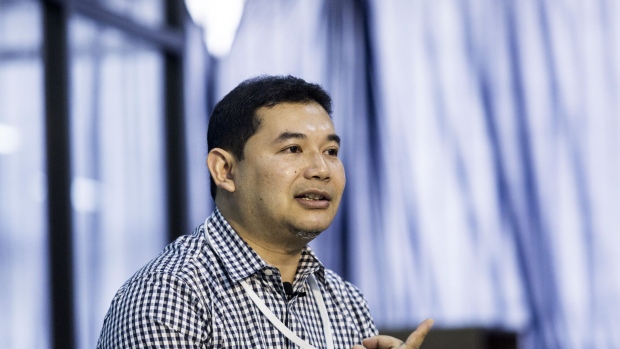Apr 16, 2024
Malaysia to Push Ahead With Long-Awaited Subsidy Cuts in 2024
, Bloomberg News

(Bloomberg) -- Malaysia will cut petrol subsidies this year as it seeks to narrow its fiscal deficit, according to the country’s economy minister.
The government is on track to focus its handouts on helping the needy, Rafizi Ramli said on Tuesday.
“We are sticking to it,” the minister said in an interview in the administrative capital of Putrajaya. The government needs to “manage the sequence” of subsidy cuts, with the risk of inflation picking up even before they are implemented, he added.
Prime Minister Anwar Ibrahim’s government needs to undo hefty subsidies and broaden its revenue base to boost investors’ confidence in the country, with the Malaysian ringgit trading near a 26-year low. Anwar, who rose to power in late 2022, has struggled with a drop in approval rating amid concerns over rising costs.
Malaysia currently absorbs much of the price of fuel and cooking oil for its population, straining the Southeast Asian nation’s coffers. The government plans to narrow its budget deficit to 4.3% of gross domestic product this year, from 5% in 2023.
The nation plans to unwind blanket subsidies for the RON95 fuel — Malaysia’s cheapest and most commonly used gasoline — which made up the bulk of the 81 billion ringgit ($17 billion) it spent on handouts last year.
“In order to reach the fiscal target of 4.3%, a certain timeline has to be abided,” Rafizi said. “Otherwise the dollars and cents will be off.”
Investors have been getting impatient with the slow rollout of promised reforms. The ringgit has declined about 4% this year and was trading on Tuesday near its weakest level since the Asian financial crisis of 1998.
Despite the ringgit’s slide, Rafizi said that he is not too concerned about the currency’s performance as it has not damped interest from foreign investors and does not hinder the government’s ambitions.
“As far as the economic ministry is concerned, we do not see ringgit fluctuations beginning to have a negative impact on our long-term restructuring,” Rafizi said.
The minister said key to this effort is to make structural changes to the economy by creating one of the world’s “top startup ecosystems” in Malaysia. The government seeks to turn Kuala Lumpur into a preferred destination for global startups to tap into funding and also serve the larger Southeast Asian market, he said.
“Malaysia should be much better as a vibrant scene for startups, for technology and digital sectors, given all our inherent advantages,” Rafizi said.
The urgency to find new growth drivers is increasing. Economic expansion last year undershot official estimates. Data due Friday will probably show Malaysia’s exports extended declines for a second month in March after a pickup in January. Exports had fallen for 10 straight months through December, the worst streak since the global financial crisis of 2008-2009.
Read: Malaysia Aims to Double VC Funding by 2030 Under New Roadmap
Khazanah Nasional Bhd., the nation’s sovereign wealth fund, will front efforts to grow the digital and technology sector in Malaysia by creating a “super fund” along with other sovereign funds to invest in startups, which the government hopes will attract venture capital firms to the country.
©2024 Bloomberg L.P.





